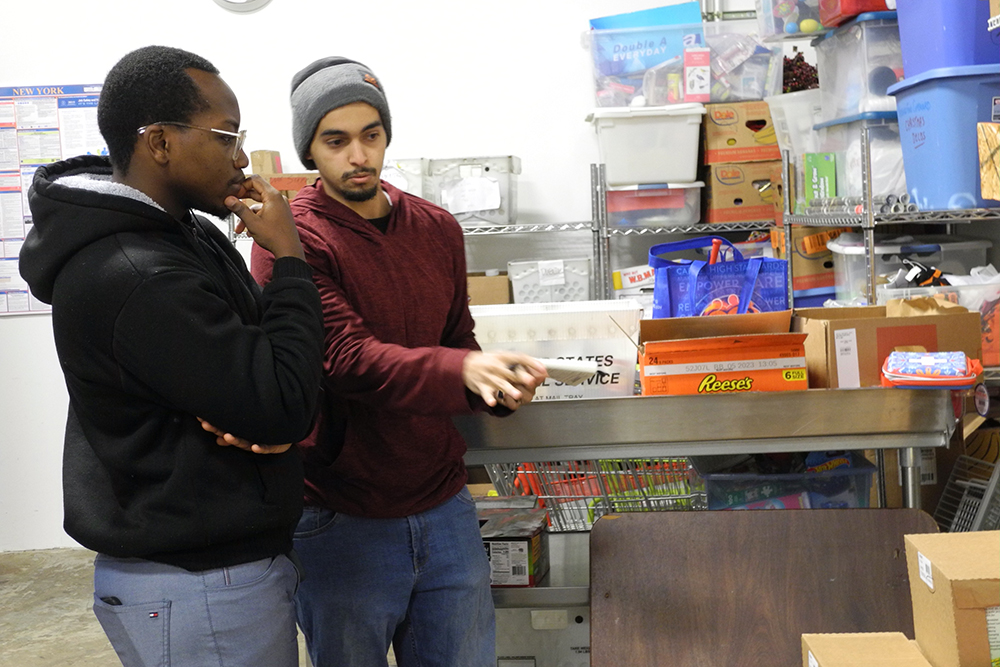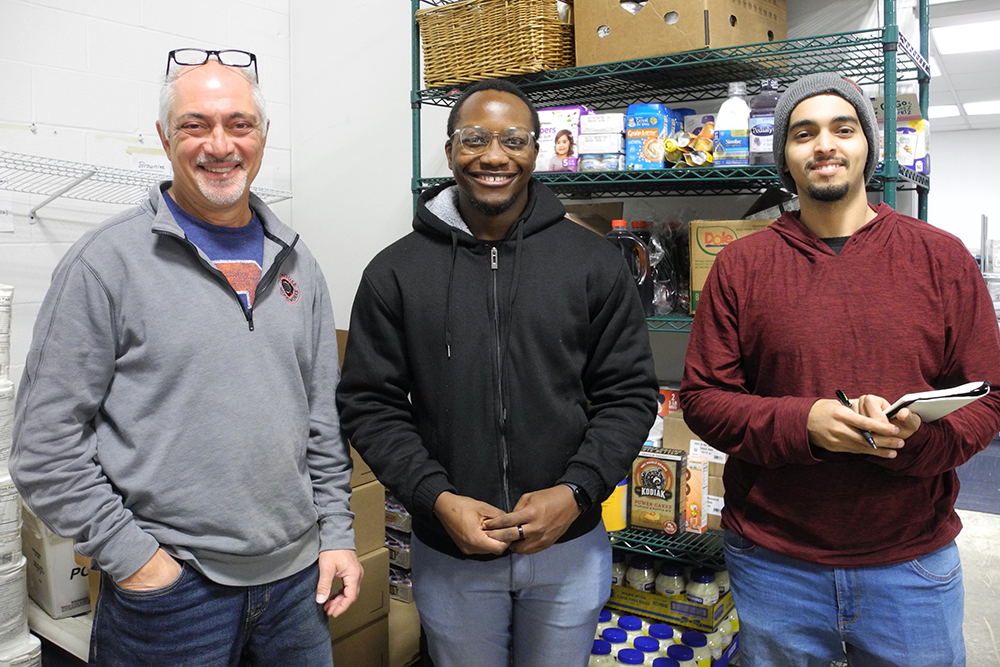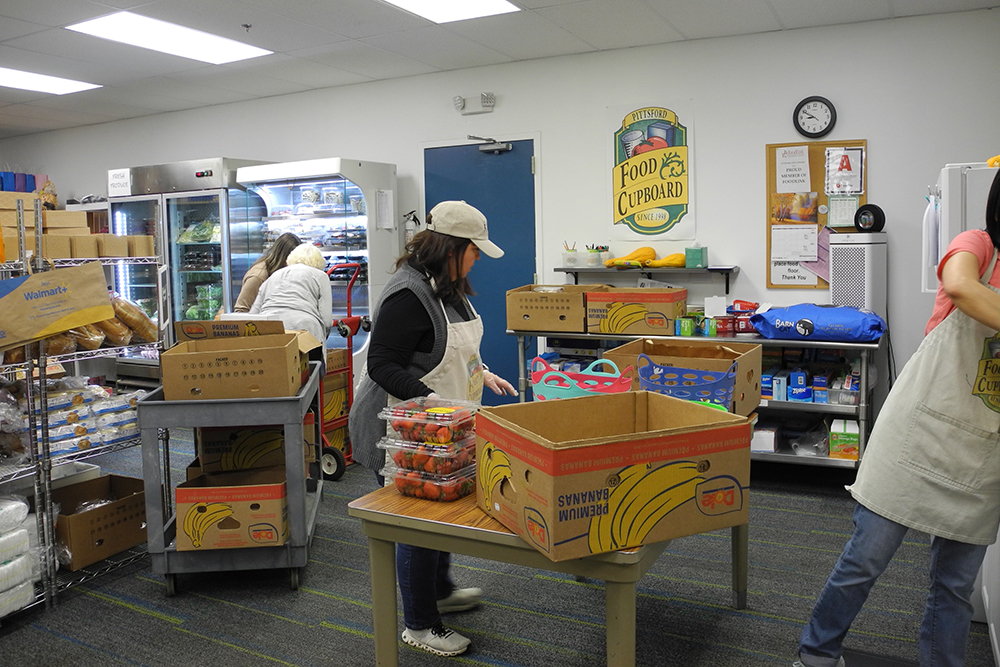Engineering students team with Pittsford Food Cupboard to improve storage space to facilitate workflow processes
Students contribute to community through semester-long projects
Members of the volunteer staff at the Pittsford Food Pantry work to sort and stock donations for the food cupboard.
RIT students found ways to serve the community one healthy meal at a time working closely with Pittsford Food Cupboard staff.
The local non-profit is preparing for another busy holiday season. Behind the scenes, staff worked with two RIT graduate students to improve the storage room layout and improve back-room processes as demand for food and household items increased.
Saleh Aref Abdullah Saleh and Winston Marvin Achar, both graduate engineering students, spent much of the semester at the food cupboard observing intake and storage processes, meeting volunteers and staff, and learning how inventory is moved from drop-off to distribution. Working with the staff, the students helped to formulate and improve warehousing processes, but on a smaller scale, to suit the needs of the busy food cupboard.

“They were open to changes, and they have said that they just needed some help in organizing. We brainstormed many ideas with them to be sure to give them options they can choose,” said Achar, who will graduate with a degree in product development. Saleh’s graduate degree is in engineering management. Both students intend to graduate this year.
As a project-based class, the students combine theory with practice as they learn about process improvement. After site observations, details learned about current processes and conversations about business challenges, they provide a range of solutions for clients—from layout and productivity recommendations for systems optimization, safety practices and quality process improvements.
Pittsford Food Cupboard, located on Monroe Avenue, houses both a bright, colorful storefront and a larger storage area near its drop off bays.
“This is a pretty busy food cupboard. We wanted to know how we can use this space even better, as effectively as possible. Saleh and Winston worked with us to make this happen,” said Jerry Shafer, one of the food cupboard supervisors. He coordinates six volunteers on Tuesdays and Fridays when the facility is open, to operate the store and organize deliveries from regional stores and from community donations. Some of the biggest providers are Wegmans Food Markets and Walmart. Items are sorted and moved into a main storage area, recorded, and stocked. Most are dry and prepared goods, some home cleaning products, and personal items.

Foodlink oversees more than 80 food pantries in seven counties like the one in Pittsford which serves the southeast quadrant of the city of Rochester as well as residents in E. Rochester and Perinton. Financial support comes from personal donations, through Foodlink, and pandemic funding and has gone toward new refrigerators for the storage area and store.
With Achar and Saleh’s recommendations, some of the additional funds may be used to add new, and repair current, shelving, one of the results of their space-usage study—the process of measuring overall space, estimating optimal cupboards, and shelving improvements and designing a flow chart of how volunteers could move efficiently through the space. They were also given access to current inventory processes and provided options to improve identification of time-sensitive goods.
“The students are learning how to be consultants, how it feels to make suggestions for efficiencies, how to recommend or even push sometimes, but in a way that is appropriate and acceptable to the clients being served. All of this requires them to provide evidence about what may or may not work, as well as to predict project outcomes based on their recommendations,” said Jennifer Englert, adjunct faculty member in RIT’s Industrial and Systems Engineering Department, who added that the department is always seeking local sponsors to work with students like Saleh and Achar on community projects related to process improvements or manufacturing, most specific to industrial engineering topics.







